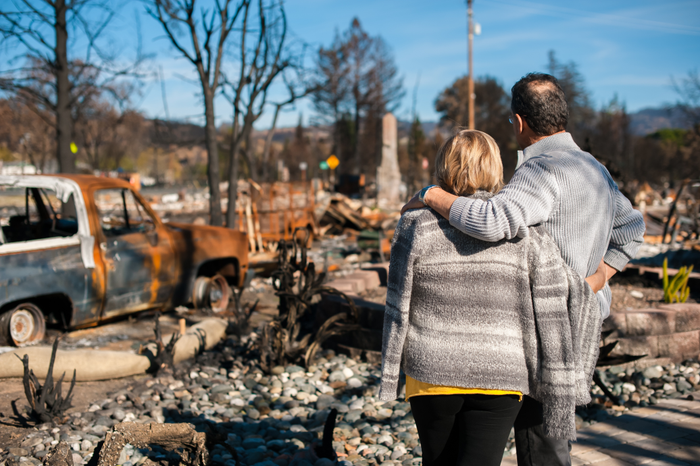Contact your insurance adjuster immediately. Not only does this get the ball rolling on the claims process, but you might be eligible for loss-of-use benefits which means you could be reimbursed for hotel costs, food and other living expenses while your house is uninhabitable.
Be sure to document all conversations with your insurance company or their adjuster and get any promises for reimbursements in writing. It’s also helpful to hold on to all receipts.
Start seeking out current replacement costs for items you'll be including in your claim rather than depending solely on historical costs.
Document the damage to your property and possessions thoroughly. Take pictures or video, if possible.
Go from room to room or document all debris piles and create a detailed account of your belongings and losses.
Make any minor repairs you can do safely to minimize further damage to your home. You could be found liable for damage that occurs after a storm has passed, so make temporary repairs such as boarding up broken windows, removing wet drywall and carpet to prevent mold and putting up a tarp over a leaky roof.
Beware of fly-by-night contractors who may try to offer these services for exorbitant fees. Be sure to get quotes in writing in advance or seek out volunteer groups in your area that may be offering assistance for free.
If your home is unlivable, contact your utility company to turn off your water and gas or electric services.
Do not make any permanent repairs until you get approval from your insurance company. Make sure you understand how your homeowner's insurance company will reimburse your repair costs.
Before spending money, call your insurance company first to make sure all necessary procedures are followed according to your policy.
Beware of contractors who claim to be insurance claim specialists and may ask you to sign an agreement to allow them to contact your insurance company and seek approval of repairs for you.
Many unscrupulous businesses have tricked consumers into signing a work estimate without reading the fine print, which commits you to automatically contract with their business if your insurance claim is approved.
Check to make sure any contractors you are considering hiring are properly licensed and have up-to-date workers compensation and liability insurance.
Check out their Business Profile on BBB.org and make sure they are approved by your insurance company before entering an agreement. Ask to see proof of their licensing and current certificate of insurance.
Be aware that if you hire an uninsured and unlicensed contractor and a serious injury were to occur to the contractor, you, as the person that hired them, could potentially be liable for paying the workers compensation benefits. This could turn a simple $1,000 repair into a bill for tens of thousands more.
In addition, a neighboring property or a pedestrian that is negligently harmed by an unlicensed contractor can become a liability to the person that hired the contractor.
Do not hand over an insurance check to a contractor for repairs prior to work being started.
A good rule of thumb is to never give more than 1/3 of the job price up front and make sure that your insurance company has approved all repairs before your final payment is given to the business.
Disaster victims should never feel pressured to make a decision by an unknown contractor.









